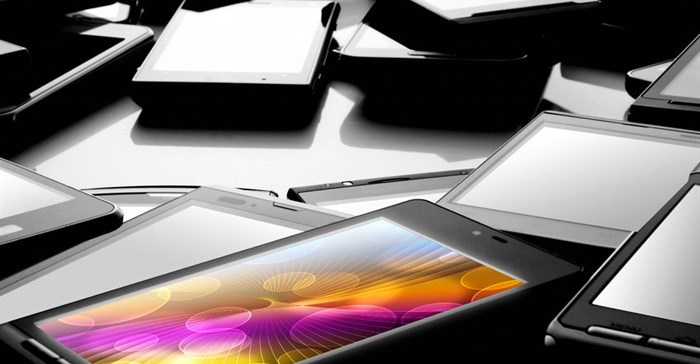
Top stories






More news


Marketing & Media
Ads are coming to AI. Does that really have to be such a bad thing?














While I admire the leaps forward in mobile technology we've witnessed in the last decade, this rush for new devices is having a devastating effect on the environment. We must acknowledge this and deal with the problem if we are to continue to enjoy our planet as much as we do our new mobile lifestyles.
Although individual phones are small, containing relatively little material, collectively the numbers are substantial. There are at least an estimated 85 million unused phones in the UK alone, each manufactured using gold, copper, silver and other precious metals which, if not recycled, must be extracted from the ground.
This adds up. These unused phones contain approximately four tonnes of gold, lost resource that would cost £110m and an equivalent of 84,000 tonnes of CO2 released into the atmosphere to replace. It is even estimated that phones contain more gold per tonne than ore mined from South Africa's famous mines.
My colleague Jacquetta Lee and I recently published research in the International Journal of Life Cycle Assessment, focused on the environmental impact throughout the lifecycle of mobile devices, from manufacture, use and disposal. We concluded that the current mobile phone business model, driven by volume of sales and frequent upgrade cycles, is costing the environment.
The problem occurs when the upgrade cycle is shorter than the phone's useful lifetime. Although mooted to be three years or more, phones are often replaced much sooner. Many are replaced through "free" contract upgrades. That itself would not be such an issue if they were returned for reuse or recycling.

But consumers are wedded to the ability to communicate, so they often keep the replaced phone as a spare in case the new one breaks or is lost. It hibernates and languishes there until it is truly obsolete, when it has no value for communication or monetary worth for resale. Recycling metals from phones is currently not a profitable business, so there is little incentive to return the phone. All too often it can end up in landfill; the metals are lost and must be replaced by mining virgin ore.
Given that the majority of a phone's environmental impact occurs during manufacturing there is strong incentive to reduce the number of phones made each year, extend their working lifetime and if possible make them less complex. It needs a new business model, and there may be an alternative.
We are now looking in to the possible benefits of a "cloud-based product service system". Here, the heavy processing and memory storage of mobile devices are moved to a remote server, over the internet. With less need for powerful components, mobile devices could be less complex, designed to last longer and require less valuable resources to make.
The consumer buys the ability to communicate and access to the powerful processing of the server. This is accessed by a handset leased to them by the service provider. That provider then has incentive to ensure the device is used for an appropriate length of time before being returned for a new one. The valuable metals are recovered and components could be reused.
This cloud model has been used already in the PC world, where replacing power-hungry desktops with thin client computers that run off the cloud, with less hardware, has reduced power consumption by up to 55%. But there are of course other challenges to overcome. We need to work out how to implement such business models whilst convincing consumers that cloud services can be trusted to deliver high performance, and hold data privately and securely. Are you ready to move your phone's entire photo collection into the cloud?
In the meantime more work needs to be done to encourage recycling. From discussions with companies involved in phone returns, it is apparent that often even sending a prepaid envelope to the consumer for the old phone, to be dropped into the nearest letter box, is not incentive enough.
Recycling may be encouraged by something as intangible as benefit to the environment, but that is a low incentive at present. It will become large enough when the environmental value of recycling the phone translates into the price of the metals in them becoming high.
It's a big question and one that will not be answered easily. What is encouraging however is that manufacturers are acutely aware of the issues and open to ideas for change. In the meantime consumers need to face reality; that our lifestyles do not exist in a bubble. The choices we make now will affect our planet sooner than we realise and at some point the bubble will burst.![]()

The Conversation Africa is an independent source of news and views from the academic and research community. Its aim is to promote better understanding of current affairs and complex issues, and allow for a better quality of public discourse and conversation.
Go to: https://theconversation.com/africa